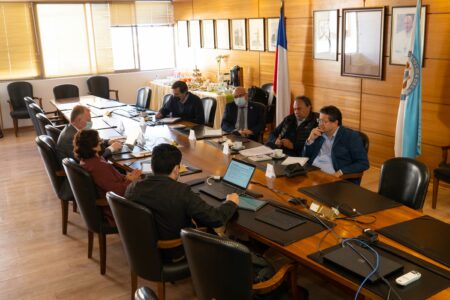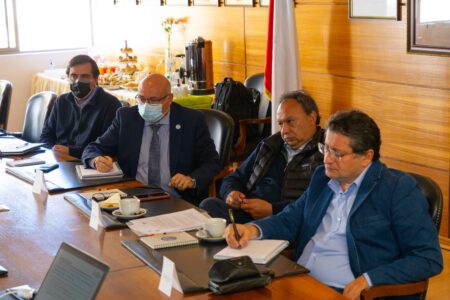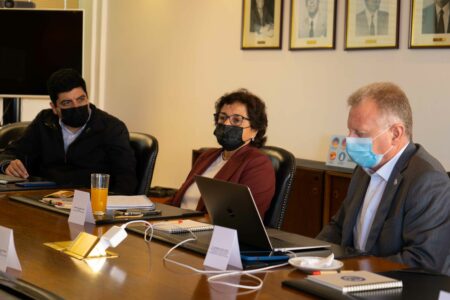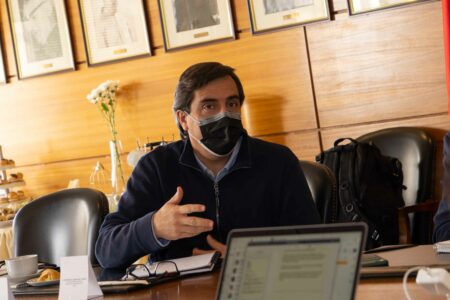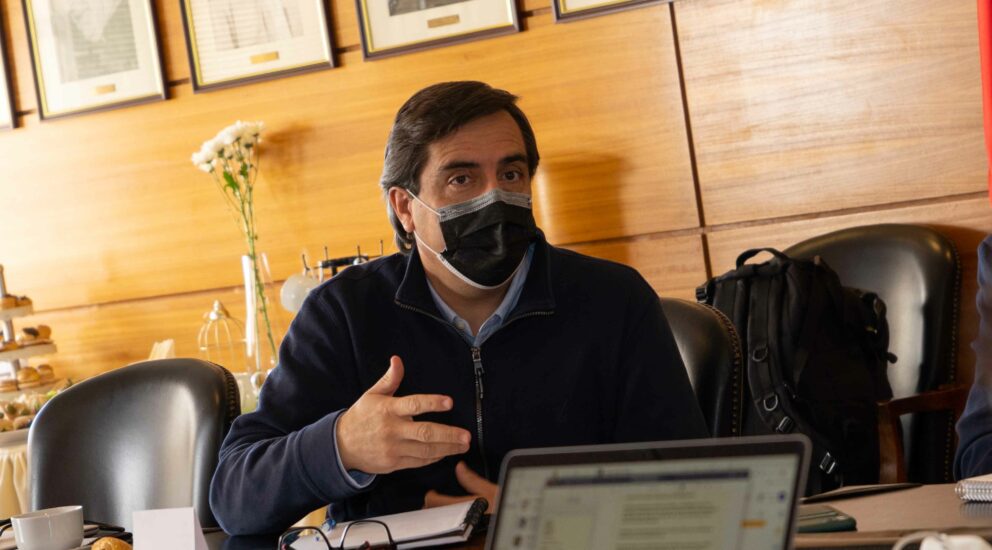
UCN and SQM Lead First Meeting to Create Lithium Research Hub
13/Aug/2022
Strategic partnership between academia and industry aims to strengthen human capital and research to sustainably mine this non-metallic resource, which is key to the global development of electromobility.
The first meeting of the board of the project to create a Research Hub for the lithium battery value chain served to kick off this working group. Led by Universidad Católica del Norte (UCN) and promoted by SQM, its objective is to propose a strategic model for sustainably mining this non-metallic resource.
At the meeting, held at UCN’s main campus, Hernán Cáceres, Dean of the School of Engineering and Geological Sciences, presented on the different areas addressed by the project.
The objective of this research hub is to form advanced human capital to work on aspects like battery development and recycling, to form partnerships with foreign entities and to create study programs involving lithium.
The meeting was attended by UCN Chancellor, Dr. Rodrigo Alda Varas; the director of Corporación Clúster Minero, Aurora Williams; SQM Vice President of Corporate Services, José Miguel Berguño; SQM Director of Community and Public Affairs for the Nitrates and Iodine Businesses, Pablo Pisani; and UCN Dean of the School of Engineering and Geological Sciences, Hernán Cáceres.
At the event, Chancellor Alda remarked that the opportunity was very promising, “since we see how this design phase is identifying capacities within UCN beyond our original expectations. There is also an entire line of work regarding possible international and national strategic partners that are going to help us jointly accomplish the initiative’s objectives.”
The partnership with academia was positively assessed by the SQM executives, who stated that basically they will give lithium-related practice to young people previously educated in UCN classrooms.
On the topic, SQM Vice President of Corporate Services José Miguel Berguño explained that “we are looking to get this initiative rolling, in order to develop human capital for developing lithium, its components and lithium recycling with a regional focus. It is important to work collaboratively, so we are already making progress on connecting with research centers all over the world, to make a plan and, above all, to have an eight-year outlook. What is also attractive to us is that, beyond those eight years, we are looking at a much longer-term outlook.”
He added that “the agreement seeks to support the creation of this research center, the ‘Center for Human Capital Development.’ The next steps aim to form teams, build partnerships and prioritize issues. Good progress has already been made with the university and we are thankful for that. This definitely confirms our decision to support this development and work in partnership with UCN.”
OBJECTIVES
Regarding areas to work on, UCN Dean of the School of Engineering and Geological Sciences Hernán Cáceres explained that this meeting is the first stage to address the design and planning of the research areas, defining the lithium battery value chain and preparing an eight-year plan. “One of the project’s objectives is to create a training path. We are talking about an undergraduate program and a master’s degree related to lithium battery lines and their development, design and recycling. Therefore, through these programs, we are going to make sure that we train professionals and have advanced human capital for the region and for Chile that have the capacity to work and innovate in these areas,” underscored the dean.
Meanwhile, Pablo Pisani, SQM Director of Community and Public Affairs for the Nitrates and Iodine Businesses, said that “we are seeking to develop human capital and research surrounding lithium. We think this is a very significant contribution to the region and to knowledge starting with the university. And in this first board meeting we are presenting the work plan to the group, which is going to set the final course that we will take from here on out over the next few years.”
ASSESSMENT
-About the partnership, the Director of Corporación Clúster Minero, Aurora Williams, expressed that “this is an extremely important working group. Antofagasta is the only region in Chile and the second mining district in the world with non-metallic mining, and particularly lithium; therefore, this joint work between UCN, SQM and Corporación Clúster Minero is very important since we should always aim to develop local talent. It is very positive that these production sectors with such a large presence in our region are collaborating to build talent, which comes naturally out of academic institutions like Universidad Católica del Norte.”
